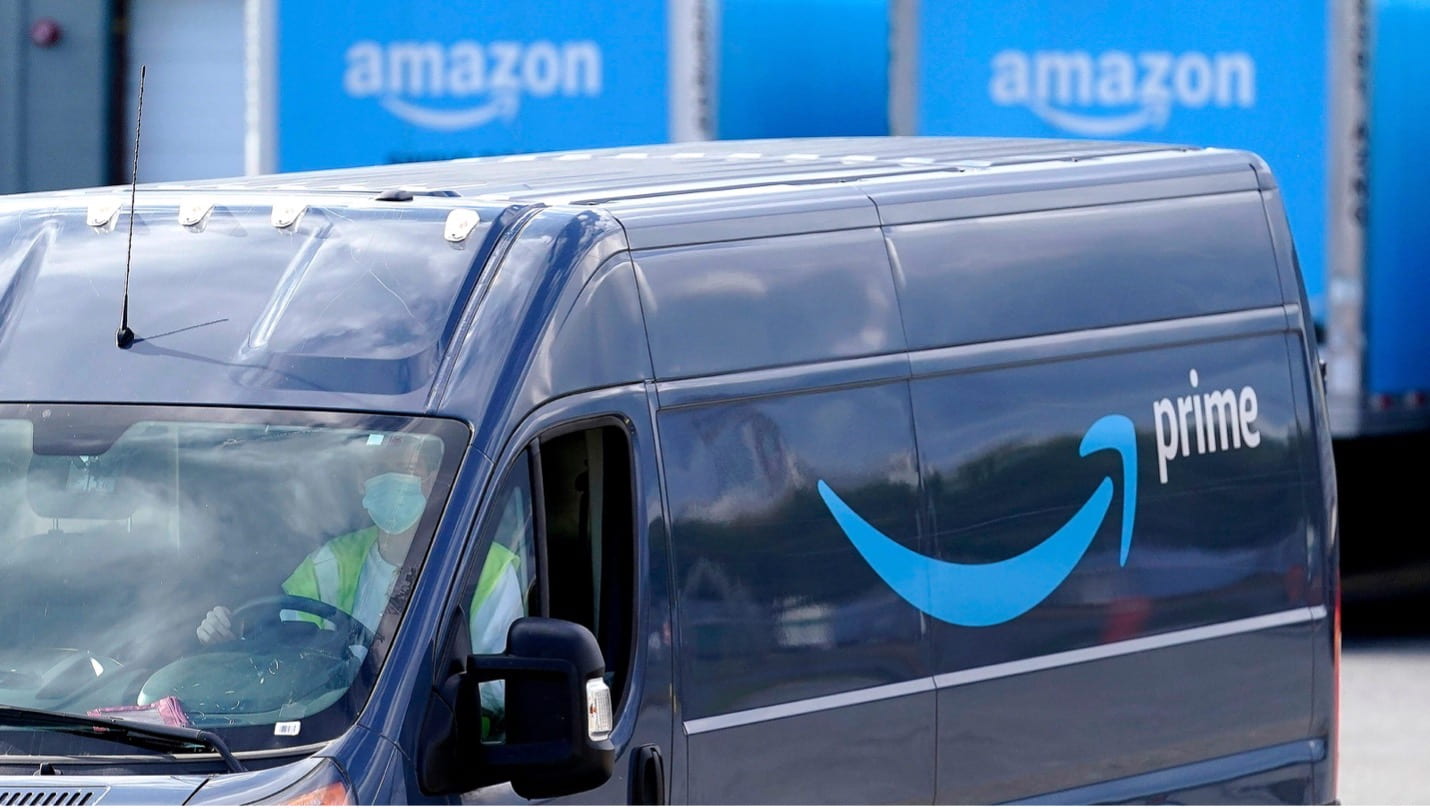By: Matt McCarthy
Recently, Amazon revealed the company would start to use AI-powered cameras to surveille their delivery drivers during the entirety of driver’s routes. The camera system called “Driveri” installs four cameras: One facing the driver, one looking out the windshield and two looking out the side windows. According to Amazon representatives, the cameras will only start recording the driver when the AI recognizes an issue. Amazon says that the purpose of these devices is to exonerate drivers from blame in safety incidents and improve safety. The AI can detect things such as when a driver doesn’t wear a seatbelt, yawns, fails to stop at a sign or light, becomes distracted, or speeds.
Concerns have understandably been raised among Amazon delivery drivers over this new system amid fear that drivers’ privacy while working is being invaded. Privacy advocates worry that equipping nearly 30,000 delivery vehicles with AI cameras could set a dangerous precedent. Evan Greer, deputy director of the tech nonprofit Fight for the Future, argues that this might be the largest expansion of corporate surveillance in human history. All these privacy concerns bring the question of whether or not what Amazon is doing is legal according to federal and state privacy laws.
Invasion of privacy is the unjustifiable intrusion into the personal life of another without consent and has four distinct causes of action. States vary on whether they recognize these causes of action and what elements must be satisfied, but the four most common types of invasion of privacy claims are: (1) appropriation of name or likeness, (2) intrusion upon seclusion, (3) false light, and (4) public disclosure of private facts. The cause of action that Amazon drivers would likely argue is an intrusion of their seclusion. Intrusion upon seclusion laws protect individuals’ rights to privacy while they are in solitude or seclusion. The general elements require there to be an intrusion into a place where an individual has a reasonable expectation of privacy and that the intrusion would be objectionable to a reasonable person. Unfortunately for Amazon drivers, under federal and state privacy laws, employers, such as Amazon are given a lot of discretion regarding employee monitoring programs. Generally, employees have little expectation of privacy while on company grounds or using company equipment, including company vehicles.
The installation of these surveillance cameras likely does not violate any established federal or state privacy laws. The cameras are likely not an invasion of privacy because the cameras only record when a driver is doing something that triggers the AI to start recording, so drivers are not being constantly filmed throughout the day. Additionally, a company van that the driver is operating in public is neither a place where one has a reasonable expectation of privacy, nor one that a reasonable person would think the driver has reasonable expectation of privacy. Therefore, there appears to be no clear laws that could protect Amazon drivers from this high level of surveillance and it seems as though drivers will have to either find new jobs, live with their new working conditions, or try to unionize like some warehouse workers around the United States. Between these proposed AI cameras in Amazon delivery vehicles, recent complaints and even strikes in Amazon fulfilment warehouses over things like surveillance concerns and working conditions, we also have to ask if there are adequate legal protections for worker’s privacy at a state and federal level.
What is potentially more concerning for the average American are the larger implications of having 30,000 vehicles outfitted with cameras recording almost every neighborhood in America. Though the cameras are not filming all the time, according to Amazon representatives, we are not sure if external actions outside of the driver may trigger the AI to start recording. The uncertainty of the scope of surveillance on Amazon vehicles could mean that millions of Americans are being recorded by Amazon delivery vans as they carry about their daily activities. If there was footage captured by the cameras on these vans, then police officers could access that footage in the course of an investigation, expanding the reach of police surveillance incredibly. Andrew Ferguson, a professor of law at American University suggests, “Amazon is quite literally building mobile surveillance vans to film our neighborhoods, something that we would rightly be horrified about if our government did it.”
Concerns of Amazon aiding the expansion of police surveillance tools comes after Amazon placed a moratorium on police use of their AI facial recognition software. Amazon received feedback that the technology reinforced racial bias and misidentified many ethnic minorities disproportionately. While Amazon has the good intentions of increasing Amazon drivers’ safety, we also have to think about the privacy issues for not only the drivers, but the American public as a whole. Amazon, while being a trailblazer in technological innovation, may be inadvertently leaving a wake of unintended consequences that could burden the average American in the future.
Student Bio: Matt McCarthy is a second-year law student at Suffolk University Law School and a Staff Member on the Journal of High Technology Law. Prior to Law School, Matt received his Bachelor of Arts Degree in International Relations from Boston University.
Disclaimer: The views expressed in this blog are the views of the author alone and do not represent the views of JHTL or Suffolk University Law School.

